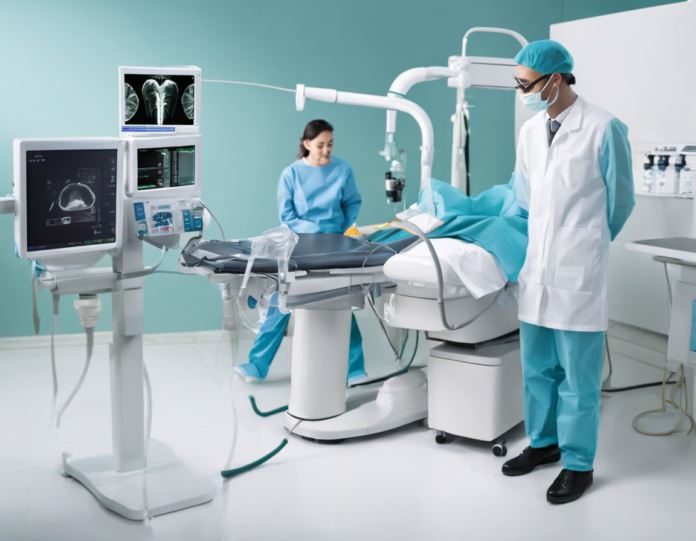Endoscopy is a common diagnostic procedure used by healthcare providers to visualize the digestive tract using a flexible tube with a camera attached to it. It helps doctors to diagnose gastrointestinal conditions ranging from ulcers and inflammation to cancer. While the procedure itself is relatively safe and effective, there are certain cost factors and considerations that patients need to be aware of before undergoing an endoscopy test.
Types of Endoscopy Procedures
There are several types of endoscopy procedures that can be performed depending on the area of the digestive tract being examined:
-
Upper Endoscopy (EGD): This procedure involves the insertion of the endoscope through the mouth to examine the esophagus, stomach, and upper part of the small intestine.
-
Colonoscopy: In this procedure, the endoscope is inserted through the rectum to examine the colon and large intestine.
-
Flexible Sigmoidoscopy: This is a shorter version of a colonoscopy, focusing on the sigmoid colon and rectum.
-
Capsule Endoscopy: A capsule containing a tiny camera is swallowed and passes through the digestive tract, transmitting images to a recorder worn on a belt.
Factors Influencing the Cost of Endoscopy
Several factors can influence the cost of an endoscopy procedure, including:
-
Type of Endoscopy: The complexity and duration of the procedure will impact the overall cost.
-
Location: The cost of endoscopy can vary significantly depending on the geographical location and the type of healthcare facility where the procedure is performed.
-
Anesthesia: Whether sedation or general anesthesia is required during the procedure can affect the cost.
-
Additional Procedures: If biopsies or other interventions are performed during the endoscopy, this can add to the total cost.
-
Healthcare Provider: Costs may differ based on the healthcare provider performing the endoscopy.
-
Insurance Coverage: The extent to which the procedure is covered by health insurance will impact out-of-pocket costs for the patient.
Understanding Endoscopy Costs
The cost of an endoscopy procedure can vary widely, ranging from a few hundred to several thousand dollars. On average, the cost of an upper endoscopy can range from $800 to $3,000, while a colonoscopy may cost between $1,000 and $4,000. These costs typically include the procedure itself, facility fees, anesthesia, and pathology fees for sample analysis.
Ways to Manage Endoscopy Costs
Patients can take certain steps to manage and reduce the cost of an endoscopy:
-
Insurance Coverage: Check with your insurance provider to understand what is covered under your plan and what out-of-pocket expenses you may incur.
-
In-Network Providers: Choose healthcare providers and facilities that are in-network to take advantage of negotiated rates.
-
Payment Plans: Inquire if the healthcare facility offers payment plans or financial assistance programs for out-of-pocket costs.
-
Cost Comparisons: Shop around and compare costs at different facilities to find a more affordable option.
-
Ask for an Itemized Bill: Review the itemized bill to ensure all charges are accurate and justified.
Frequently Asked Questions (FAQs)
1. Is endoscopy a painful procedure?
Endoscopy is usually not painful, as patients are typically sedated or under general anesthesia during the procedure. Some patients may experience mild discomfort or bloating afterward.
2. How long does an endoscopy procedure take?
The duration of an endoscopy procedure can vary depending on the type and complexity. In general, an endoscopy takes between 15 minutes to an hour to complete.
3. Are there any risks associated with endoscopy?
While endoscopy is considered safe, there are some risks involved, including bleeding, infection, perforation of the digestive tract, or adverse reactions to anesthesia.
4. Can I eat or drink before an endoscopy?
Patients undergoing an upper endoscopy are typically instructed to fast for a certain period before the procedure to ensure a clear view of the digestive tract. Your healthcare provider will provide specific instructions based on the type of endoscopy being performed.
5. What should I expect after an endoscopy?
After the procedure, patients may experience bloating, gas, or a sore throat. It is essential to follow post-procedure instructions provided by your healthcare provider, including dietary restrictions and medication guidelines.
6. How often should I undergo an endoscopy?
The frequency of endoscopy screenings depends on individual risk factors and medical history. Your healthcare provider will recommend the appropriate screening intervals based on your specific situation.
7. Can I drive myself home after an endoscopy?
Due to the effects of sedation or anesthesia, patients are usually not allowed to drive themselves home after an endoscopy. It is recommended to arrange for a responsible adult to accompany you and drive you home.
8. Are there alternative tests to endoscopy?
Depending on the specific condition being investigated, alternative tests such as imaging studies, blood tests, or stool tests may be considered. Your healthcare provider will determine the most appropriate diagnostic approach for your situation.
9. What should I discuss with my healthcare provider before undergoing an endoscopy?
Before the procedure, it is essential to discuss any medications you are taking, allergies, medical conditions, and concerns you may have with your healthcare provider. This information will help ensure a safe and effective endoscopy procedure.
10. How soon can I resume normal activities after an endoscopy?
Most patients can resume normal activities, including work and exercise, the day after an endoscopy. Your healthcare provider will provide specific guidelines based on your individual recovery process.
In conclusion, endoscopy is a valuable diagnostic tool for evaluating gastrointestinal conditions, and understanding the cost factors and considerations involved can help patients make informed decisions. By being proactive in managing endoscopy costs and discussing any concerns with healthcare providers, patients can navigate the process more effectively and ensure optimal care.





